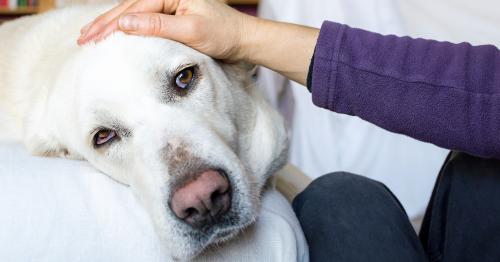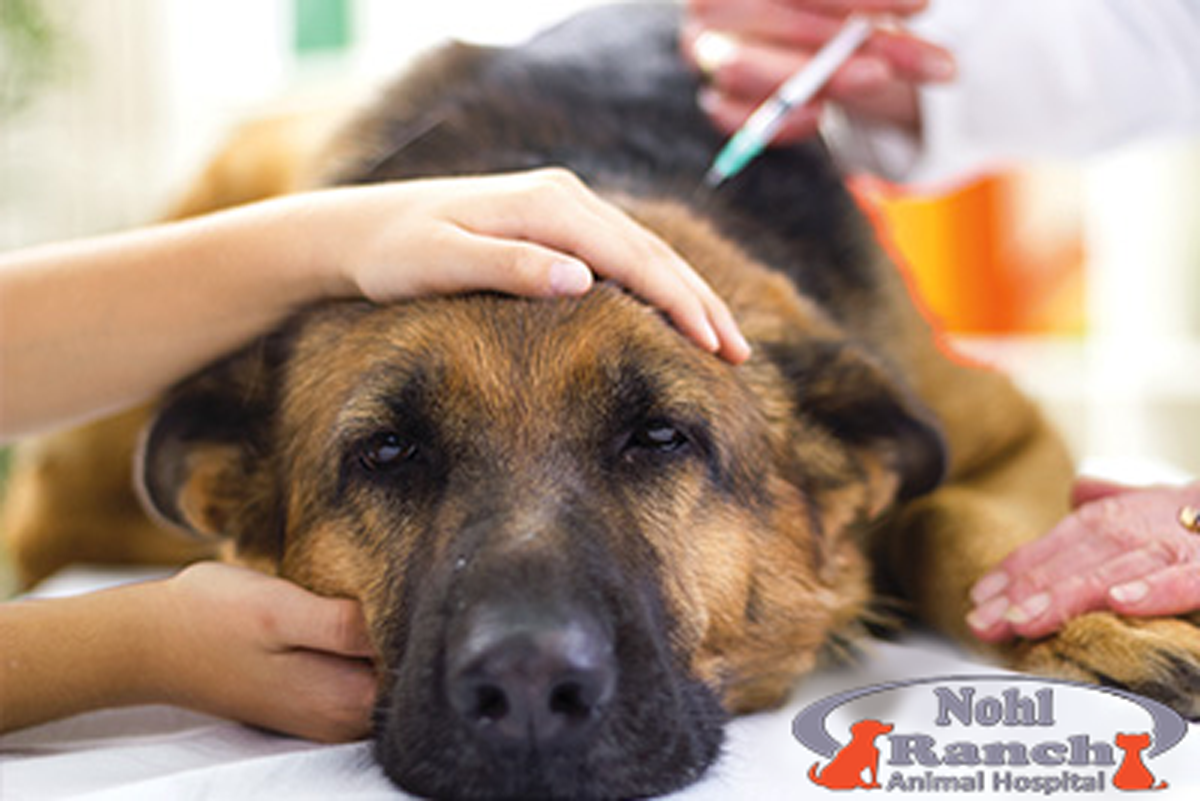“Animal Pain Awareness Month”
Animal Pain Awareness Month is here! To us, it’s a particularly important awareness month to discuss on behalf of the pets we love so much. It coincides with (human) Pain Awareness Month which creates a good opportunity to think on the ways that we are all affected by pain. Animals experience the same pains that people do. They just can’t tell us about it. Thinking about what you know about pain, whether from an injury, arthritis, after a procedure, etc. is a good place to start to be aware of an animal’s experience.
Pain isn’t fun for any of us, and our furry friends are no exception. It helps educate and inform pet owners about animal discomfort. The goal is to help pet owners learn about their pets’ health and well-being when it comes to pain management, be it acute or chronic pain. This can greatly improve their quality of life.
Remember that any behavioral change can indicate a physical problem, not just that a pet is grumpy, old, or depressed. Here in Nohl Ranch Animal Hospital, our veterinarians are the best to evaluate your pet for potential painful conditions. If you notice anything, please consult our vets for a full examination, including a pain assessment, and talk about the findings.
History of Animal Pain Awareness Month:
In 2001, The International Veterinary Academy of Pain Management “IVAPM” was established. Then, In September 2015, the first Animal Pain Awareness Month took place thanks to the International Veterinary Academy of Pain Management.
During this annual campaign, “IVAPM” is helping raise awareness on how to recognize and manage pain in animals. The annual initiative coincides with human medicine’s Pain Awareness Month and includes outreach and information campaigns aimed at helping veterinarians educate consumers on how to recognize and manage chronic and acute pain through traditional and complementary treatments.
“It’s often very hard to know when an animal is suffering. Their signs of pain are subtle and it’s also part of their survival instinct to hide pain,” says IVAPM president-elect Jennifer Johnson, VMD, CVPP. “That’s why it is so important for veterinarians to conduct pain assessment exams at least annually and certainly as part of regular exams. We know chronic pain can have significant detrimental effects on lifespan and quality of life. By spotting pain early, veterinarians can better treat and manage pain.”
According to IVAPM, more than 45 million household pets suffer from chronic or acute pain, but unlike their human counterparts, they cannot tell us where it hurts.
Why Is Animal Pain Awareness Month Important?
Animal Pain Awareness Month is important because many pet owners are unaware that even when a pet is calm, it’s possible that they are experiencing pain. Regular vet visits in our Hospital and close attention to behavioral changes are key parts of ensuring that pets stay as pain-free as possible. Animal Pain Awareness Month strives to remind pet owners that there are many options, including physical therapy, rehab, and medications, to help pets in pain.
Also, Proper pain management now helps reduce risks later, it can save them from a serious illness or other irreversible issue.
Finally, it highlights the need for having a great veterinarian, it’s important to establish a relationship with a veterinarian for annual check-ups. Should an issue arise, you’ll know exactly whom to call.

Can Preventative Care Help With Animal Pain Management?
Staying on top of your pet’s routine health checkups, vaccinations, procedures and more can ensure they remain as pain-free as possible. At Nohl Ranch Animal Hospital, we offer several Services for pet owners. Explore our recommended Services below for your pets:
- Wellness Exams and Vaccinations.
- Dentistry Services.
- Pet Laser Therapy.
- Surgical Services.
Usual Symptoms of Pain:
Animal pain awareness begins with understanding that not all pain is obvious, and it certainly isn’t “just getting old” or “starting to slow down”. Our pets can’t describe what and how much it hurts, so we need to know how to observe signs of discomfort. We also need to consider symptoms over time. It’s easy for their pain to go unnoticed by us for a while. Many animals are famously better at just getting on with their days when something hurts than we are. This isn’t really a good thing, though, considering it can mask a condition. If a pet is showing visible pain, particularly regarding something chronic or slow to develop, like arthritis or cancer, they might have been hurting for quite a while before they began limping or stopped playing as much. It’s up to us, their caregivers, to keep an eye out for possible problems so we can seek early intervention.
Whenever humans suffer from pain, we express it in many ways including holding the stricken area, grimacing, vocalizing distress or posting about it on social media. Animals can also display that they are in pain, though their ways may be a bit different.
Sings of Pain In Dogs, Cats & Other Pets:
- Decreased social interaction.
- Acting depressed, withdrawn or uninterested.
- Anxious expression.
- Submissive behavior.
- Whimpering.
- Howling or growling in dogs.
- Increased agitation, snapping or snarling.
- Decreased appetite or refusing to eat at all.
- Changes in posture or gait.
- Difficulty rising and standing up after sitting or lying down.
- Reduced activity.
- Inability to run as fast or as often as normal.
- Quiet/loss of curiosity.
- Changes in urinary/defecation habits.
- Hissing or spitting in cats.
- Lack of agility.
- Excessive licking
- Grooming excessively, typically in a single area.
- Decreased or stopping of grooming.
- Focused chewing or scratching on a single area, sometimes to the point of mutilation.
- Hunched over and other changes in posture, also called guarding.
- Sleeping longer and more often than is typical for your pet.
- Hiding or refusing to come when called (referred to commonly as denning).
- Trembling and shaking more than is typical for the weather.
- Heavy panting or labored breathing.
How to Care For Your Pet In Pain?
When it comes to detecting pain, you should look for any change in your pet’s behavior. Let’s face it, you know your pet better than anyone else. Everyone has experienced pain in one degree or another. We also know how debilitating it can be. Our pets have a limited language to convey the pain they are experiencing. Take the time to “listen” to them and, if you think something is wrong, take them to our Specialist Veterinarians in Nohl Ranch Animal Hospital. When in doubt, it is always advisable to err on the side of caution. Additionally, if your pet is diagnosed with any medical condition, it is always a good idea to ask our vets if there is any pain related to it and, if so, what options there are for pain management. However, do not give your pet human pain medication unless our veterinarian has specifically recommended it.
Steps to Do, To A Pain-Free Pet :
- Our Specialist Veterinarians Can Always Check: As part of a routine visit, our vets will check for any indications of discomfort.
- Keep Your Eye on Behavior: Most often, behavioral changes are the most obvious sign that your pet may be in some sort of distress.
- Keep Those Teeth Healthy: One source of pain that is often overlooked is oral discomfort. Dogs, cats, and other pets can feel terrible when their teeth aren’t healthy. From infection to receding gums, dental problems can cause your pet pain as they eat, drink, and even play. Come in for a checkup. We’ll take a look at your pet, we can even clean up that smile and extract any problem teeth.
- Nutritional Supplements and Nutraceuticals: Nutraceuticals may sound like a foreign language, but these are just simple compounds found in foods and plants. They can do wonders for pets struggling with cancer and joint-related pain. Not just for dogs and cats: they work for reptiles and birds!
As a pet parent, it’s your responsibility to keep an eye on your pets’ dental hygiene and weight. Proper nutrition and exercise go a long way.
At Nohl Ranch Animal Hospital, We always strive for your Pet health mentally and physically.
For More Information, Please Call us at (714)-921-2495 Or Make an Appointment Now!
Nohl Ranch Animal Hospital has been serving pets in “Orange“,”Anaheim“,
“Santa Ana“,”Fullerton” and “Tustin” for more than “15” years.
Join Our Happy Clients From here Contact Us…
We’ll be more than happy to answer all your questions and concerns.

